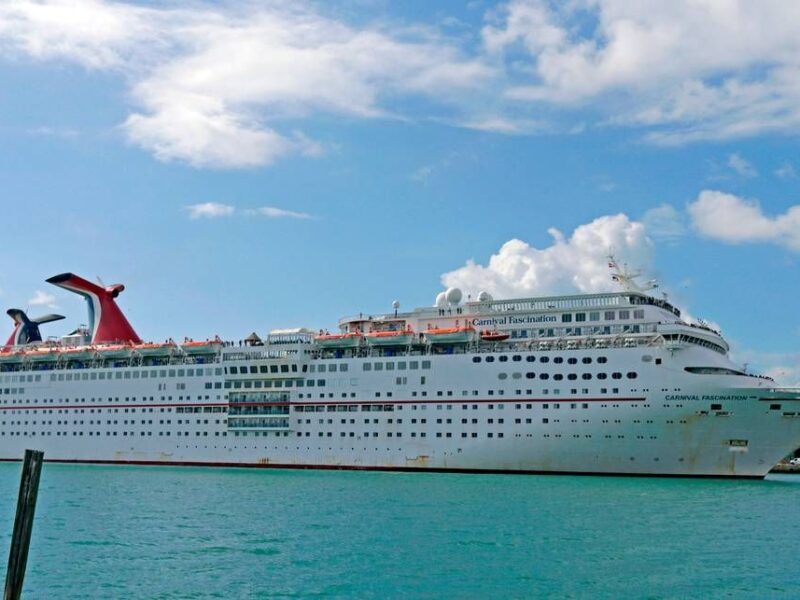
Carnival Corporation will part with a total of 18 cruise ships in the next few months — 12% of its fleet — as it continues to cut costs while cruising in most of the world remains banned.
The company announced an adjusted third-quarter loss of $1.7 billion in a financial filing Tuesday, six months after it first announced it was shutting down operations amid the COVID-19 pandemic. The company had previously announced in July it would part with 15 ships. The move to speed up efforts to slim capacity comes as cruises in the U.S., the company’s most lucrative market, remain banned by the U.S. Centers for Disease Control and Prevention until Oct. 1. Most lines serving the U.S. have voluntary ceased cruising until at least Oct. 31.
Carnival Fantasy, Carnival Fascination, Carnival Imagination, Carnival Inspiration and Costa Victoria have already been scrapped. In July, Holland America Line and P&O Cruises announced that Amsterdam, Maasdam, Rotterdam, Veendam and Oceanea would be leaving the fleets and transferring to undisclosed buyers.
The company is also slowing down the delivery schedule of its new ships, now expecting only five of the nine ships originally scheduled to be delivered by the end of 2021.
Carnival Corp., the largest cruise company in the world with nine cruise lines, restarted operations in Italy on Sept. 6 of its Costa Cruises line. The cruises are only available to Italian passengers, who are required to undergo rapid COVID-19 antigen tests before boarding.
Investigation
How many coronavirus cases have been linked to cruises? Check out the latest numbers
The Miami Herald investigated COVID-19 outbreaks on cruise ships. Explore the findings of the most comprehensive tracking system of coronavirus cases linked to the cruise industry.
CEO Arnold Donald participated in a public meeting with Miami-Dade commissioners last week to urge the CDC to allow for cruises to restart in the U.S. He said the company was working to develop science-based protocols to keep passengers and crew safe and to prevent burdening government resources.
Story continues
“We want no one to experience a greater risk on a cruise ship,” he said.
Commissioners did not ask Donald or the CEOs for Royal Caribbean Group, Norwegian Cruise Line Holdings and MSC Cruises about how they would prevent outbreaks at sea and avoid complications that left passengers and crew stranded in March and April and overwhelmed the Coast Guard overwhelmed with medical evacuation requests.
A spokesperson for the CDC said the agency does not have enough information to say when it will be safe for cruise ships to resume passenger operations.
At least 24 Carnival Corp. ships have been affected by COVID-19 and at least 80 of the company’s passengers and crew have died from the virus, according to a Miami Herald investigation. Carnival Corp., along with its competitors, have struggled to contain outbreaks among crew on its ships after all passengers were repatriated. In June, Carnival Corp. decided to pull all of its cruise ships out of U.S. waters partly because it disagreed with a requirement from the CDC that crew remain in individual cabins as much as possible. It has not reported COVID-19 or COVID-like illnesses to the agency since then.
On Tuesday the company said it is seeing bookings for the second half of 2021 toward the higher end of historical ranges. More than half of bookings during the third quarter were new bookings as opposed to future cruise credits from canceled cruises, the company said.
Since it stopped operating in March, Carnival Corp. said it has raised $12 billion. As of the end of the third quarter on Aug. 31, the company said it had $8.2 billion of cash and cash equivalents.






Leave a Reply